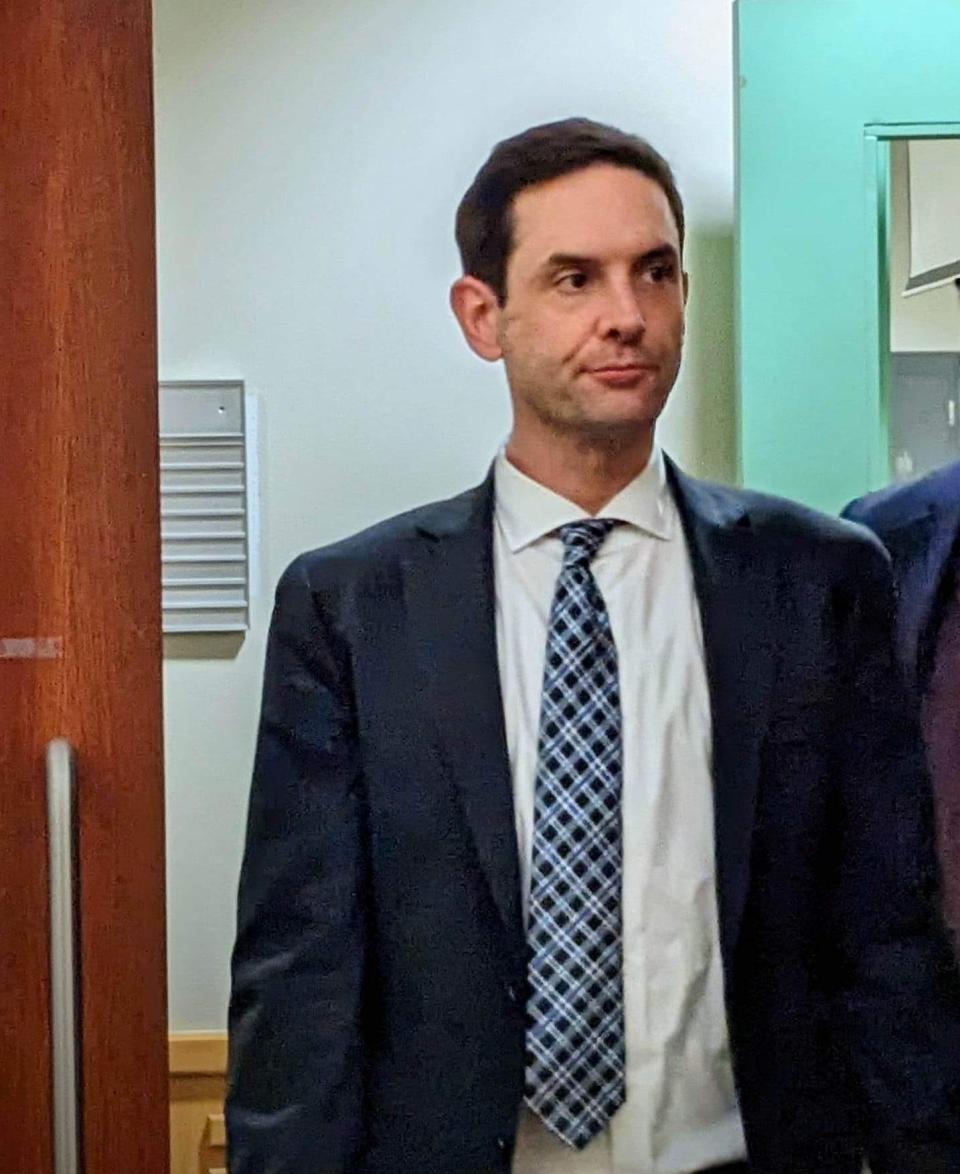Language in key search warrant focus of James Staley's appeal hearing
Whether James Irven Staley III is ever freed from prison may now be up to three justices on Texas’ Second Court of Appeals.
Staley, scion of a once-prominent Wichita Falls oil family, was convicted of capital murder in the 2018 death of 2-year-old Jason Wilder McDaniel. The toddler was smothered with a pillow in Staley's home.

Staley was sentenced to life in prison without the possibility of parole following a trial in March 2023.
He is appealing the conviction, claiming evidence from a search warrant that netted electronic devices in his home should not have been admissible.
More: Jury delivers verdict in Staley murder trial
Oral arguments before the justices Tuesday centered on the “any and all devices” language in the warrant, which appeared to concern the justices.
Defense attorney Keith Hampton said sweeping up any and all devices in a search has been condemned by the U.S. Supreme Court.
He blasted the warrant for what he called, “a lack of probable cause, a lack of particularity, a use of boilerplate language.”
He said the warrant did not present adequate evidence “to get inside a cell phone or inside of a computer.”
More: Autopsy findings: 2-year-old Wilder McDaniel may have been smothered with pillow
Hampton said while the Fourth Amendment to the U.S. Constitution states no warrant shall be issued without probable cause, the warrant in the Staley case met none of the requirements of the law.
Wichita County District Attorney John Gillespie countered that the warrant was not boilerplate, and that Texas law allows prosecutors to introduce relationships and state of mind into murder trials, which he claimed justified the search for evidence in Staley’s home.
“Prior relationship is evidence. If prosecutors can offer it, then detectives can search for it, and if detectives can search for it, then magistrates can authorize it if they have a substantial basis to search,” Gillespie said.
The relationships and state of mind Gillespie referred to were what he called the “volatile dating relationship” Staley had with the child’s mother, Amber Odom McDaniel, facial bruises the toddler suffered in Staley’s care and captured on Amber’s cell phone in a picture she sent to detectives, and a “suspicious state of mind” exhibited by Staley in not consoling the mother or going near the dead child.
Gillespie argued a dating relationship in this day and age includes a fair probability of electronic communication.
“We live in a digital age,” he said. “I would suggest unless someone is Amish, a dating relationship in a domestic household arrangement is going to have documentation electronically between two parties that are caring for the toddler in that house.”
Justice Dana Womack asked Gillespie if he agreed that the “any and all” language in the search warrant was inappropriate.
Gillespie said the context in the warrant was limited enough by being confined to the Staley house and the devices that existed in that house.
“Case law says you don’t have to be specific in the specific device to be seized,” he said.
Justice Brian Walker asked Gillespie, “Do you concede this isn’t the best warrant affidavit you’ve probably seen in your career?”
More: Amber McDaniel sentenced to two years jail
“I probably wouldn’t make that concession,” Gillespie answered, saying he had seen a lot of warrants that didn’t have the number of facts the Staley warrant contained.
Hampton took investigators in the case to task, calling their work “shoddy.”
“The incompetence is unusual. You just don’t see this,” he said. “This was negligence at its worst.”
Gillespie cited case law to persuade the justices the warrant was legitimate.
Walker asked Hampton if he was suggesting that a warrant should specify every item to be taken.
“That is exactly what search warrant affidavits look like,” Hampton said.
The justices will now decide whether Staley’s conviction should be upheld, overturned or retried. No date has been set for that decision.
This article originally appeared on Wichita Falls Times Record News: search warrant focus of James Staley's appeal hearing this week

